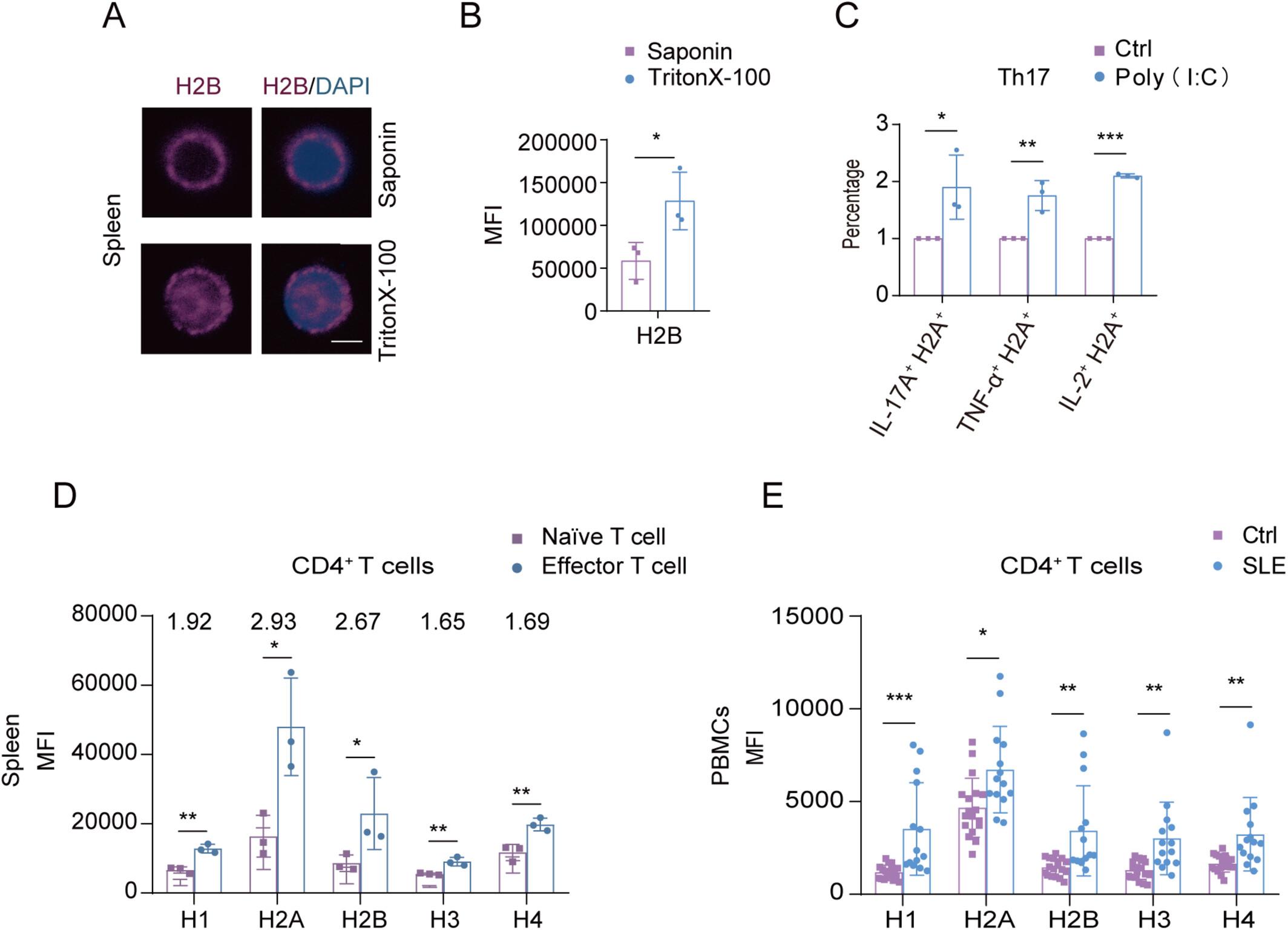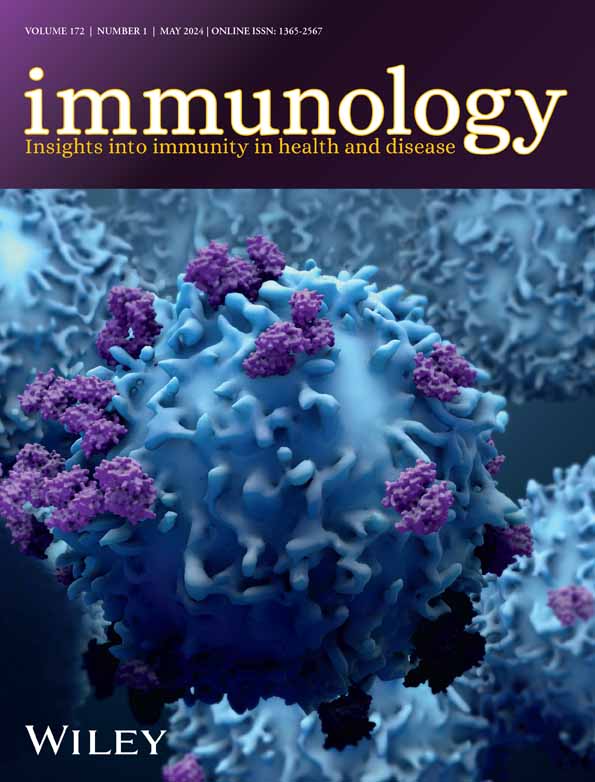Cytoplasmic Histone Is a Marker of Pro-Inflammatory CD4 + T Cells
Abstract
Although extranuclear histones have been identified for a long time, their role in lymphocytes, particularly cytoplasmic histones, remains elusive. In this study, we conducted a visual and quantitative analysis of cytoplasmic histones in CD4+ T cells and discovered that effector CD4+ T cells contain higher levels of cytoplasmic histones compared to naïve T cells. We observed a significant increase in cytoplasmic histones following T cell receptor (TCR) activation, with further elevation during the differentiation of Th1 and Th17 cells. Interestingly, double-stranded RNA (dsRNA) specifically enhanced cytoplasmic histones in Th17, but not in Th1 cells. Additionally, we confirmed that cytoplasmic H2B-positive Th17 cells exhibited increased expression of inflammatory molecules, including pro-inflammatory cytokines. Data are available via ProteomeXchange with identifier PXD063335. Importantly, CD4+ T cells from peripheral blood mononuclear cells (PBMCs) of patients with systemic lupus erythematosus (SLE) presented elevated levels of cytoplasmic histones. These findings define cytoplasmic histones as markers of proinflammatory CD4+ T cells and suggest their potential as biomarkers for autoimmune disease.


 求助内容:
求助内容: 应助结果提醒方式:
应助结果提醒方式:


